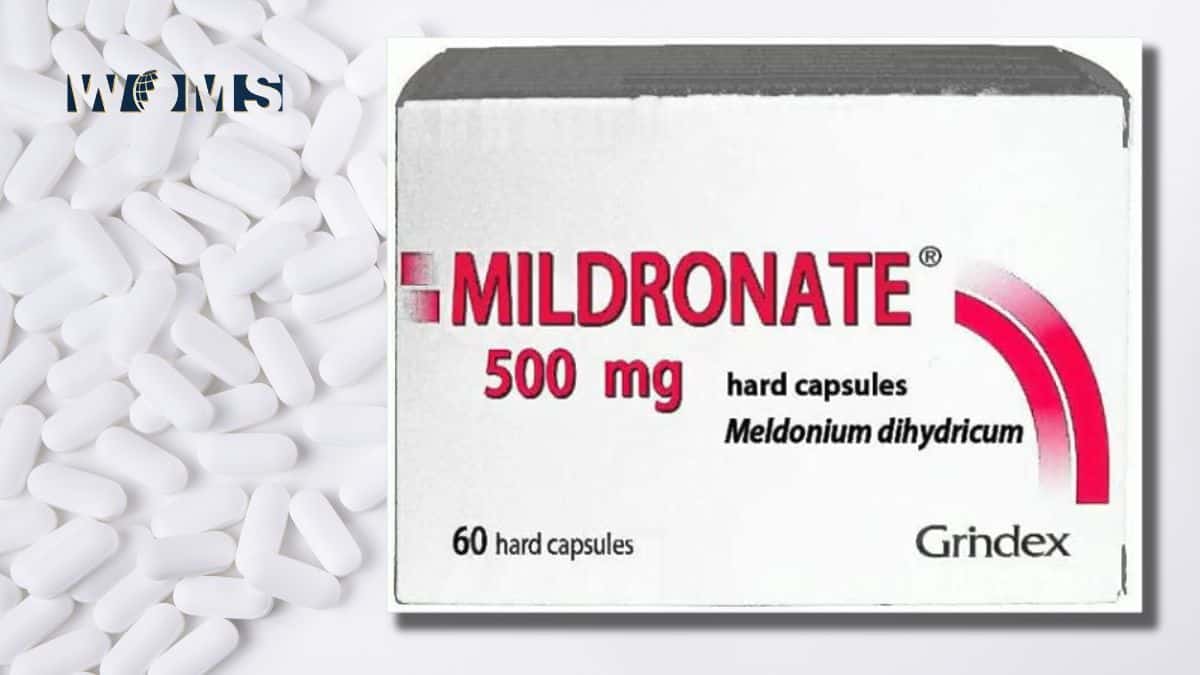Guide On How Mildronate Works, Uses, And Benefits

Mildronate, also known as Meldonium, is a medication that has gained popularity in recent years due to its alleged performance-enhancing and cognitive benefits. It got developed in Latvia, and Mildronate has since been approved for medical use in Russia, Ukraine, and other Eastern European countries. Here, we’ll explore the science behind how mildronate works, its usage, and its potential benefits.
Define Mildronate
In the situations like angina, chronic heart failure, cardiomyopathy, and other cardiovascular problems, mildronate gets used to treat ischemia, which is a shortage of blood flow to body organs. The medication can improve endurance and stamina while adjusting how the body uses energy. As a result of the increased blood flow, athletes can exert themselves more effectively since more oxygen is getting to their muscles.
How Does Mildronate Work?
Mildronate enhances the body’s ability to produce energy by improving the metabolism of fatty acids. Specifically, it inhibits the enzyme carnitine acetyltransferase, which is responsible for transporting fatty acids into the mitochondria, as they get used for energy production.
By inhibiting this enzyme, Mildronate increases the concentration of fatty acids in the bloodstream, which can get used more efficiently for energy production. This process is particularly beneficial during periods of increased physical activity or stress when the body needs more energy.
Uses and Benefits of Mildronate
Cardiovascular Health
One of the primary uses of Mildronate is for cardiovascular health. It has been shown to improve blood flow and oxygen supply to the heart, making it reasonable for treating angina and heart failure. Additionally, mildronate can reduce the risk of arrhythmia and myocardial infarction.
Cognitive Function
Mildronate has been touted for its potential cognitive benefits, particularly in memory, attention, and learning. It has been suggested that Mildronate may improve cognitive function by increasing blood flow to the brain and enhancing the uptake of glucose, which is the energy source for the brain.
Sports Performance
Mildronate has gained notoriety in the sports world – due to its alleged performance-enhancing benefits. It has been suggested that Mildronate may increase endurance, improve recovery time, and reduce fatigue during physical activity. However, the World Anti-Doping Agency (WADA) added Mildronate to its list of banned substances in 2016, citing its potential performance-enhancing effects.
Neurodegenerative Diseases
Mildronate has shown promise in the treatment of neurodegenerative diseases such as Alzheimer’s and Parkinson’s. It has been suggested that Mildronate may protect the brain against oxidative stress and inflammation, which are vital factors in the development of diseases.
Dosage and Side Effects
The recommended dosage of Mildronate varies depending on the condition getting treated. For cardiovascular health, the recommended dosage is typically 500mg to 1g per day, taken orally. For cognitive function, the recommended dosage is typically 500mg per day, also taken orally.
Mildronate is generally well-tolerated, and side effects are rare. However, some people may experience mild side effects like nausea, dizziness, or headaches. Mildronate should not get used by pregnant or breastfeeding women or individuals with kidney or liver disease.
Conclusion
Mildronate is a medication that has gained popularity in recent years due to its alleged performance-enhancing and cognitive benefits. It works by improving the metabolism of fatty acids, which can then be used more efficiently for energy production. Mildronate has a variety of potential uses and benefits, including cardiovascular health, cognitive function, sports performance, and the treatment of neurodegenerative diseases. While it is generally well-tolerated, Mildronate should not get used by pregnant or breastfeeding women or individuals with kidney or liver disease. As with any medication, it’s necessary to consult a healthcare provider before taking Mildronate.




